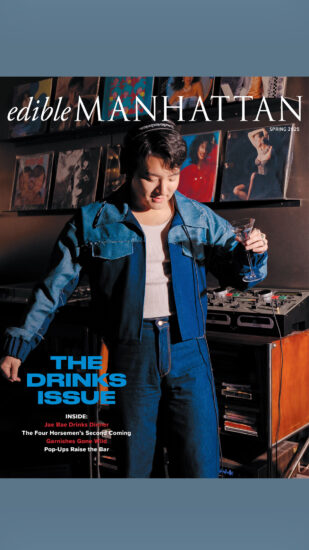Earlier this month, luminaries of the food movement — who also happen to be longtime friends — took the stage at Cooper Union’s historic Great Hall. Attendees flocked from across the nation to watch farmer-poet Wendell Berry and Wes Jackson, president of The Land Institute, join New York Times columnist Mark Bittman for a friendly conversation about the current state of food and farming, how we got here and what lies before us.
A frisson of excitement filled the air of the amphitheater (the event had sold out in only hours after being posted) on this otherwise gloomy Friday night as Berry, Jackson and Bittman rubbed elbows with urban gardeners, academics, literati, society folks, activists and students in anticipation of the discourse.
An environmental scientist with a PhD in genetics, Wes Jackson is founder of the Land Institute in Salina, Kansas. The institute’s holy grail is to develop perennial grains, or ones with roots that would grow deep into the earth year-round to help hold the soil and prevent runoff. They also aim to develop systems to plant in combination to maintain soil health and prevent or diminish the need for chemical inputs like herbicides, pesticides and fertilizers. These “perennial polycultures” take nature as their role model, creating a sustainable agriculture that’s quite contrary to industrial farming’s dominant practices.
Both friends have written extensively on culture and the environment, with Wendell Berry being the more literary one, whose insightful poems, stories and essays have reaped him huge followings and an abundance of arts and science awards.
As Bittman introduced them, “Either could be resting on his wondrous accomplishments over lifetimes of varied work — a fraction of which would be enough to satisfy most of us that we’d spent our time on earth wisely. Instead, they’re still crusading and wonderfully.”
We were honored to be in the room that evening when the two friends, who are champions (if not forces) of nature, shared their thoughts on the past, present and hope for the future of our shared food system. “What we’re talking about is changing the view of nature radically, from the idea of nature as an enemy to be conquered to the idea of nature as an ally,” said Wendell. “We have to have a better standard, the standard is nature… and then we begin to judge our solutions, we begin to judge the steps we’ve made, we begin to work our way, slowly, humbly, alertly and pleasingly toward a better way.”
“We can solve this problem, and we can solve it in our time,” added Wes. “We can now build an agriculture based on the way natural ecosystems work.”
Thank you, Wes and Wendell, for giving us reason for hope.
You can listen to the full audio from Heritage Radio Network here.




